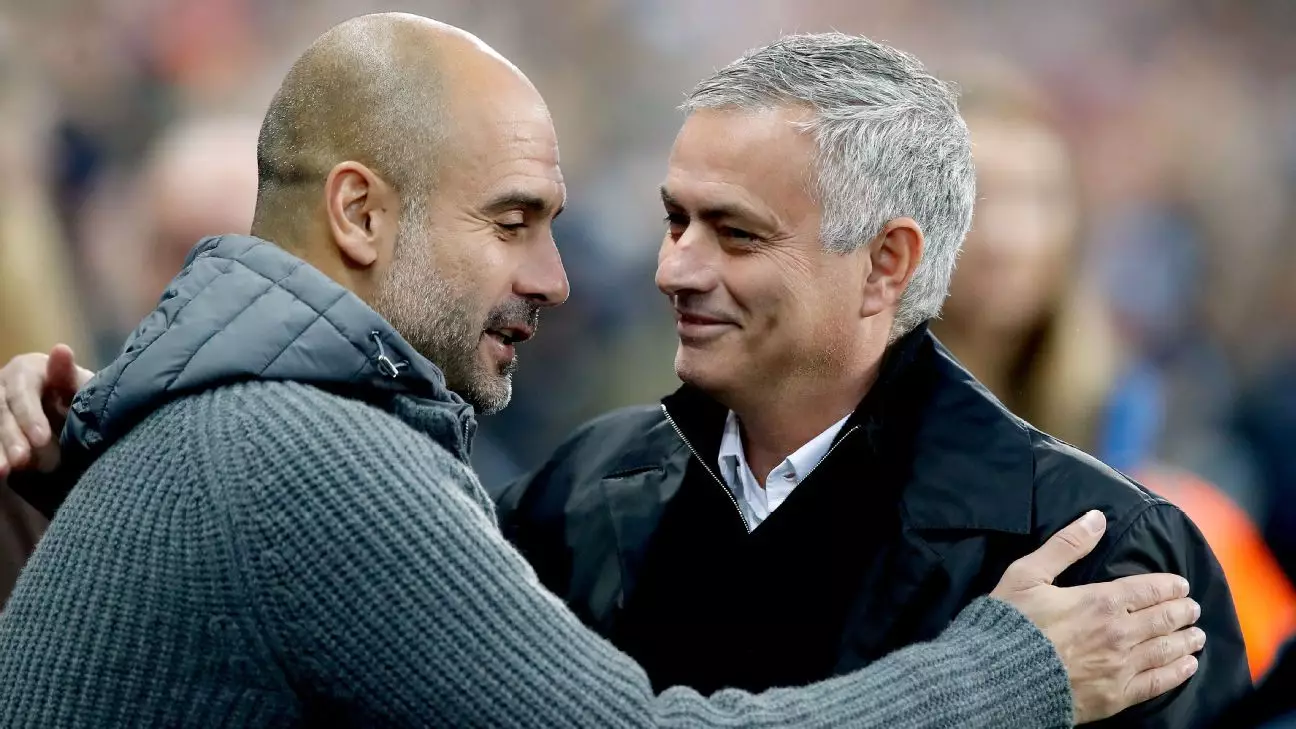The ongoing rivalry between José Mourinho and Pep Guardiola has not just been confined to the pitch; it has become a verbal joust that continues to captivate football enthusiasts. Recently, Mourinho responded to Guardiola’s boast about his six Premier League titles, emphasizing the fairness with which he attained his three championships during his time at Chelsea. Guardiola’s assertion came after his Manchester City team suffered a notable defeat to Liverpool—a moment that prompted him to flaunt his accolades to the crowd in a show of confidence. This incident, however, reflects deeper themes of integrity and legitimacy in competitive sports, particularly within the Premier League.
In light of Guardiola’s comments, Mourinho took the opportunity to highlight a crucial aspect of his managerial journey: the ethical backdrop against which his victories were secured. He pointed toward ongoing investigations into Manchester City regarding alleged financial misconduct spanning nearly a decade. This was a strategic move not only to defend his own legacy but also to draw a stark contrast between his methods and those employed by his rival. Mourinho’s assertion that he won his titles “fairly and cleanly” serves as a powerful statement about the values that underpin successful management. It also raises questions about the criteria by which we judge greatness in the sport—do we only look at accolades, or do we consider the circumstances surrounding those achievements?
The back-and-forth exchange between these two managerial giants displays how psychological tactics play a vital role in football. Guardiola’s upbeat confidence juxtaposed with Mourinho’s calculated retorts has evolved into a larger narrative about their differing approaches to leadership. While Guardiola’s style exudes a certain bravado, Mourinho often roots his comments in realities that challenge his opponents’ credibility. This aspect introduces a psychological layer to the competition, which reflects a broader narrative in sports where mental fortitude can be as significant as physical skill.
Mourinho’s remarks also touched on a sensitive topic: the potential stripping of titles from Manchester City. Should the allegations against City lead to sanctions, the historical context of those trophies comes into question, casting shadows over their accomplishments. Mourinho hinted at the possibility of adding a fourth Premier League medal if Manchester City were penalized. This scenario evokes a compelling debate about how titles awarded under contested circumstances should be viewed in the annals of football history.
Ultimately, the Mourinho-Guardiola saga transcends mere discussions of trophies. It delves into vital themes of justice, integrity, and legacy in football. As fans and analysts dissect these exchanges, they reveal the underlying tensions that define one of the sport’s greatest rivalries. What stands clear is that while trophies matter, the stories behind those trophies—how they were earned and the ethical implications—will continue to shape football’s narrative for years to come.

Leave a Reply